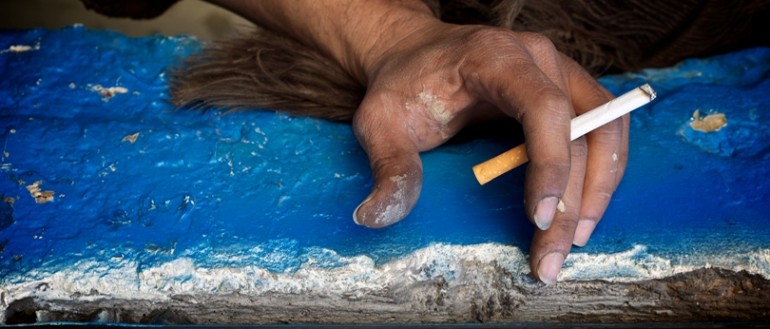Aims:
- To explore the determinants of smoking among young Indigenous Australians with a particular emphasis on the social and cultural processes that underlie tobacco use patterns among this group.
Summary:
This project was undertaken in northern Australia and involved group interviews with 65 participants and individual in-depth interviews with 11 youth aged 13–20 years led by trained youth ‘peer researchers.’ Visual methods (photo-elicitation) were also utilised with individual interviewees to investigate the social context in which young people do or do not smoke.
Our research has found:
The study found that family and peer influences play a central role in smoking uptake among Indigenous youth. Social influences to smoke are similar between Indigenous and non-Indigenous youth but are more pervasive (especially in the family domain) among Indigenous youth.
While Indigenous youth report high levels of exposure to smoking role models and smoking socialisation practices among their family and social networks, this study provides some indication of a progressive denormalisation of smoking among some Indigenous youth.
Chief Investigator:
- Dr Vanessa Johnston
Contact information:
- Dr Vanessa Johnston
Project dates:
This project concluded in 2012.
Funders:
- The Lowitja Institute
- Johnston, V., Westphal, D., Earnshaw, C., and Thomas, D.P. (2012). Starting to Smoke: A qualitative study of the experiences of Australian Indigenous Youth. BMC Public Health, 12, 963.
- Johnston, V., Thomas, D.P., Westphal, D. and Earnshaw, C. (2012). 'Starting to Smoke': The experiences of Aboriginal Youth in NT, Wangka Pulka The Lowitja Institute, Melbourne, (8), 12-13.

